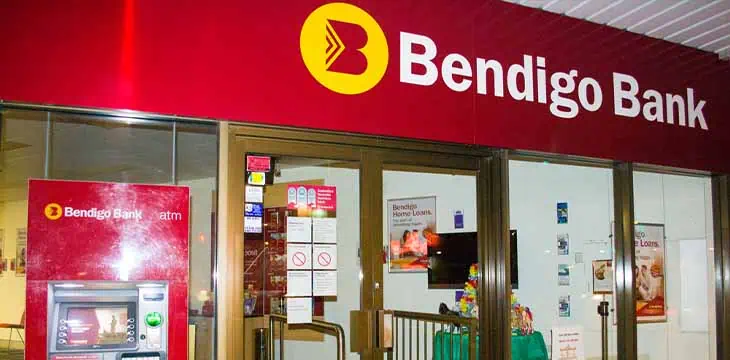|
Getting your Trinity Audio player ready...
|
Bendigo and Adelaide Bank have banned high-risk payments to digital asset exchanges for its 2.3 million customers to combat fraud.
The Australian bank said the ban will protect its customers from investment scams. According to the Australian Competition and Consumer Commission’s Scamwatch, Aussie investors have lost $3.1 billion to scams last year.
The ban will affect instant payments to digital asset exchanges, including adding “some friction to certain genuine payments,” Jason Gordon, the bank’s head of fraud prevention, says.
Bendigo Bank will identify high-risk payments through a “combination of factors,” a spokesperson told one media outlet but declined to offer any specifics. The bank also refused to reveal the specific exchanges that the ban will affect.
Bendigo becomes the latest bank in Australia to implement digital currency-specific bans as financial institutions crack down on digital currency scammers. Westpac, the National Bank of Australia, and the Commonwealth Bank, three of the four largest banks in the country, have announced similar bans in recent months.
Other payment platforms are also joining in and implementing digital currency bans. Cuscal, a digital payments platform owned by Mastercard (NASDAQ: MA), Bendigo, and major credit unions, is now restricting digital asset firms from its services. The company was the most popular payment platform for exchanges, with Binance, Independent Reserve, and BTC Markets among its clients.
One of Cuscal’s new measures is requiring all digital currency clients to declare that they have adequate anti-fraud programs.
“We are committed to working with our [crypto exchange] customers to understand the extent (if any) of gaps between existing systems, processes and controls and the new requirements to help develop a reasonable transition plan,” a spokesperson from Zepto, Cuscal’s banking partner, states.
Cuscal is also instituting other measures that major banks have been implementing for months. These include a $10,000 monthly limit and a 24-hour transaction hold for clients transferring funds to digital asset exchanges.
Aussie digital asset industry in uproar
The Aussie digital asset industry is up in arms over the latest moves.
“I’m not sure how much fraud protection there will be asking us to hold customer money for 24 hours, even after we’ve done all the identity checks. We’ll have to see how it goes,” says Dan Rutter, CEO of Digital Surge, a Brisbane-based digital asset exchange.
Michael Bacina, the chairman of the industry lobby group Blockchain Australia says that financial institutions must find a balance between protecting investors and denying them their basic financial rights.
“Australians rightly expect businesses they deal with to pitch in to help tackle this problem [of scams], but they also expect to be able to spend their money and use their assets as they choose, without undue restrictions,” Bacina tells local newspaper AFR.
“Striking a balance requires evidence-based decision-making so that the costs of protection are proportionate to the benefit that protection brings.”
Others say that banks must recognize the major leaps local exchanges have made in recent years to curb fraud. Adrian Przelozny, the CEO of the local exchange Independent Reserve, says most exchanges have implemented measures to thwart scams.
“Scams remain a very small part of our overall volume, and we call people up straight away, especially older people, if they look like they’re making transfers that could be a scam,” he notes.
Watch: How global micropayment system can reduce fraud

 07-09-2025
07-09-2025 





